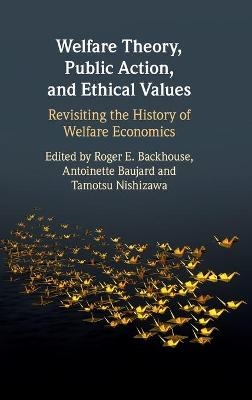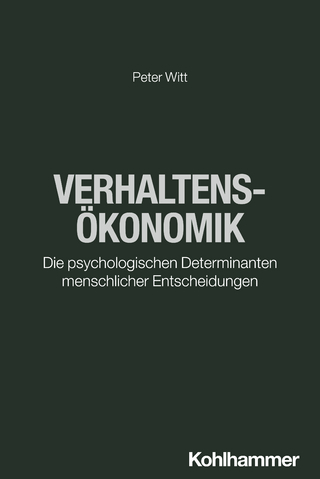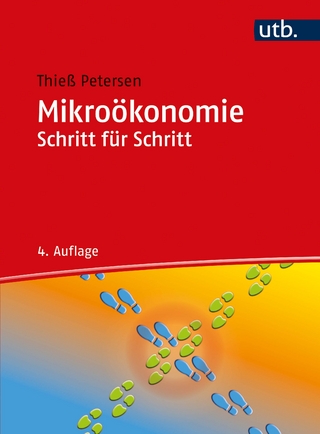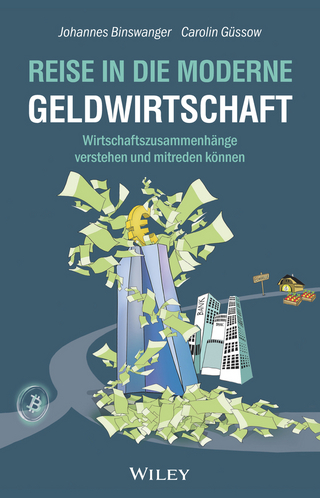
Welfare Theory, Public Action, and Ethical Values
Cambridge University Press (Verlag)
978-1-108-84145-0 (ISBN)
This innovative history of welfare economics challenges the view that welfare economics can be discussed without taking ethical values into account. Whatever their theoretical commitments, when economists have considered practical problems relating to public policy, they have adopted a wider range of ethical values, whether equality, justice, freedom, or democracy. Even canonical authors in the history of welfare economics are shown to have adopted ethical positions different from those with which they are commonly associated. Welfare Theory, Public Action, and Ethical Values explores the reasons and implications of this, drawing on concepts of welfarism and non-welfarism developed in modern welfare economics. The authors exemplify how economic theory, public affairs and political philosophy interact, challenging the status quo in order to push economists and historians to reconsider the nature and meaning of welfare economics.
Roger E. Backhouse is Professor of the History and Philosophy of Economics at the University of Birmingham and endowed Professor of Methodology and History of Economics at Erasmus University, Rotterdam. Antoinette Baujard is Professor of Economics at the University of Lyon and Jean Monnet University at Saint-Etienne. Tamotsu Nishizawa is Professor of Economics at Teikyo University, Japan.
Introduction: revisiting the history of welfare economics Roger E. Backhouse, Antoinette Baujard and Tamotsu Nishizawa; Part I. Plurality of Welfare in the Making of Welfare Economics: 1. Ruskin's romantic triangle: neither wealth nor beauty but life Yuichi Shionoya; 2. Radicalism versus Ruskin: quality and quantity in Hobson's welfare economics Peter Cain; 3. Alfred Marshall on progress and human wellbeing Tamotsu Nishizawa; 4. Pigou's welfare economics revisited: a non-welfarist and non-utilitarian interpretation Satoshi Yamazaki; 5. To which kind of welfare did Léon Walras refer? The theorems and the state Richard Arena; 6. Value judgement within Pareto's economic and sociological approaches to welfare Rogerio Arthmar and Michael McClure; Part II. Developing Modern Welfare Economics: 7. John Hicks's farewell to economic welfarism: how deeply rooted and far reaching is his Non-Welfarist Manifesto? Kotaro Suzumura; 8. Individualism and ethics: Paul Samuelson's welfare economics Roger E. Backhouse; 9. Non welfarism in the early debates over the Coase theorem: the case of environmental economics Steven Medema; 10. Richard Musgrave and the idea of community Maxime Desmarais-Tremblay; 11. Non-welfaristic features of Kenneth Arrow's ideas of justice Nao Saito; 12. Beyond welfarism: the potential and limitations of the capability approach Constanze Binder; 13. The influence of Sen's applied economics on his non-welfarist approach to justice: agency at the core of public action for removing injustices Muriel Gilardone; Conclusion Roger E. Backhouse, Antoinette Baujard, and Tamotsu Nishizawa.
| Erscheinungsdatum | 16.03.2021 |
|---|---|
| Zusatzinfo | Worked examples or Exercises |
| Verlagsort | Cambridge |
| Sprache | englisch |
| Maße | 158 x 235 mm |
| Gewicht | 640 g |
| Themenwelt | Wirtschaft ► Allgemeines / Lexika |
| Wirtschaft ► Volkswirtschaftslehre ► Mikroökonomie | |
| ISBN-10 | 1-108-84145-7 / 1108841457 |
| ISBN-13 | 978-1-108-84145-0 / 9781108841450 |
| Zustand | Neuware |
| Informationen gemäß Produktsicherheitsverordnung (GPSR) | |
| Haben Sie eine Frage zum Produkt? |
aus dem Bereich


